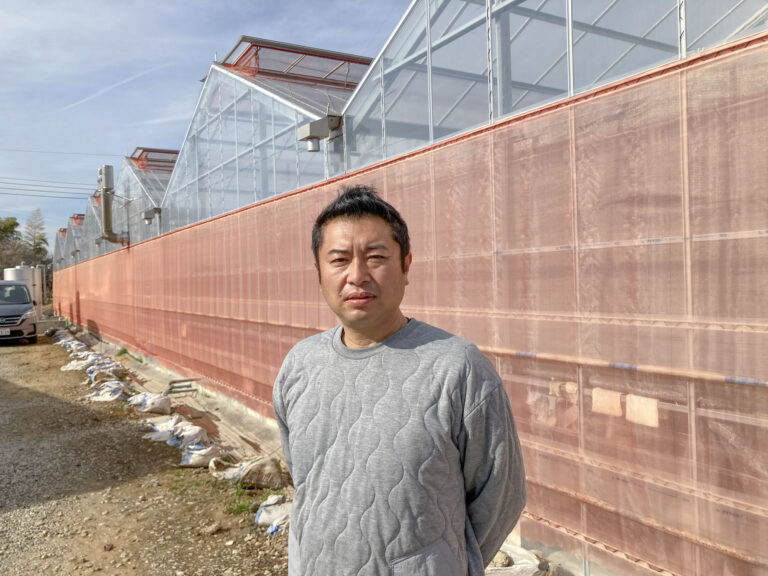“Farmers deserve holidays, too!” This simple yet bold slogan is championed by the company that makes “Zero Agri”, an automated irrigation system in which AI digitizes and analyzes cultivation tasks previously done by hand, then packages the data before presenting it. Smart agriculture like this which utilizes AI has been gaining attention as one way to attract newcomers to farming.
Eiji Kaneko, the CEO of Universal Agriculture Support, LLC, has been actively implementing AI on his farm. His motto is “Connecting agriculture with welfare”, and he manages a socially-conscious farm where people with special needs work while receiving the support they need. He is the 16th generation of a farm family and he grew up helping his parents on their farm. He started working on the farm seriously in 2004 and cultivated strawberries for a decade. During those years, he also participated in volunteer programs. His activities included helping people recover from the Tōhoku earthquake of 2011. He has also given lectures on growing strawberries to ethnic minorities in a mountainous area of Thailand, by invitation of a group there. Through his array of experiences as a volunteer, he’s built quite a network.
In 2018, his father asked him to take over their farm. Kaneko reflects, “At first, I thought it wasn’t possible. There are lots of restrictions for individual farmers and it’s not like I can do everything freely. I wasn’t sure what to do”.
Why not establish a company and work as a team? At the time, besides being a farmer himself, he was working as an agricultural specialist in an advocacy organization for people with disabilities. The agricultural industry was facing a labor shortage and welfare facilities were looking for local job opportunities for those with special needs. He thus struck on the idea to connect agriculture to welfare by starting a special co-op farm. After he unveiled the business model, he worked with supporters to break down the tasks his staff would be doing. Staff are involved in shipping as well so that they can feel connected to the market (society). “The most important thing is to make sure that the business owner, supporters, and employees think together and move toward the same goal,” explains Kaneko passionately. “We take our time to create an environment where they feel safe so they can learn through small mistakes and successes. We then try to improve reproducibility. In other words, in order to expand this system in society, others should be able to do what we do.”
The “Zero Agri” system currently installed on the farm uses IoT and AI to cultivate cherry tomatoes. AI analyzes information like solar input, soil temperature, and soil moisture content. It then waters and fertilizes through surface and submerged pipes. Since plants can also absorb water from moisture in the air, watering too much can make roots and leaves overgrown. That wastes nutrients, resulting in less yield. Farmers often say, “It takes 10 years to master watering”. It indeed requires skill and experience. Also, tasks for employees are managed by automation, resulting in much higher efficiency.
Lately, due to his specializing in connecting agriculture to welfare, a wide variety of industries are interested in having Kaneko as a guest speaker, a director of employee training, and a business consultant. I’m sure that demand for social farm owners like Kaneko will increase in the future. The vegetables harvested from his farm are consumed locally in Yokohama. Kaneko says, “My goal for the future is to do more research on DNA in crops and to use that data to open ten farms in Japan before I turn sixty. Perhaps some of them could be in other countries.”
Through such passion, it’s easily possible to connect countries in the world through this tech. His farm seems like a power source of its own, with his vision growing without limit.


